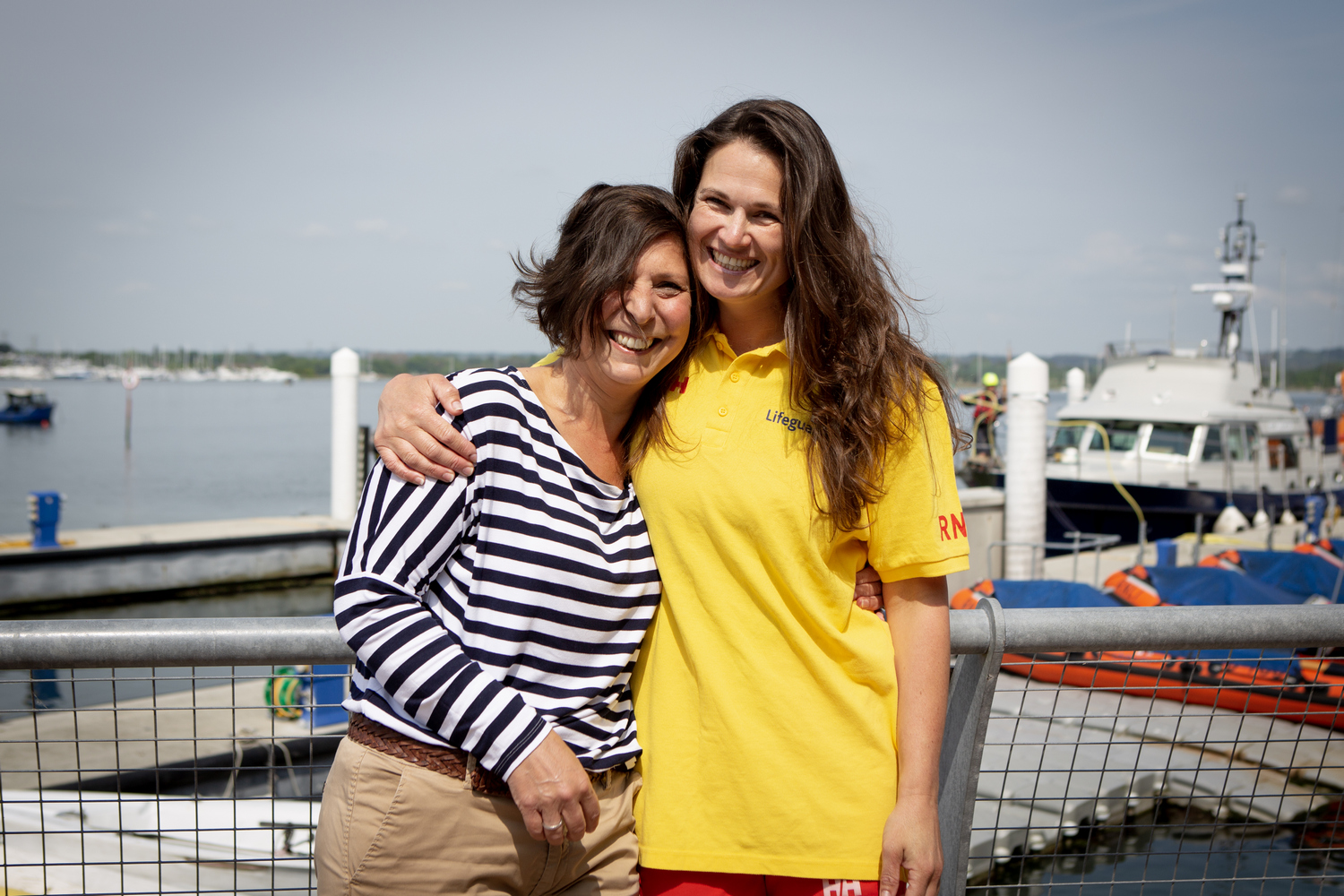The RNLI has launched a major safety campaign for everyone planning to enjoy the coast this summer, with the message: Float to Live.

Tina West with RNLI lifeguard Tarryn Brown. Photograph: Jimmy Young
Many people do not know what to do if they unexpectedly get into difficulty in the water, the organisation says. The RNLI’s advice is to relax and try to breathe normally, then once your breathing is under control, call for help or swim to safety if you feel able.
Using the Float to Live technique helped save Tina West’s life as she holidayed with her husband in St Ives Bay last summer. Tina had been paddling near Godrevy Beach when she was suddenly swept out of her depth.
“The weather was sunny, so I just thought I’d go for a paddle,” she said. “My feet were on the ground — and the next minute they weren’t. I was just getting pushed further and further out. I started waving my arms and shouting for help to see if anybody could see me. I was getting quite tired — but I remembered seeing the RNLI’s Float to Live safety advice at work, so I was able to float on my back to stay calm.”
Fortunately, Tina’s husband was able to raise the alarm. “Once I knew lifeguards were on their way, I thought ‘As long as I keep calm, I’ll be all right’. The advice of Float to Live was an absolute lifesaver. The waves were big, but because I was floating, my head wasn’t going under the water. Once I saw the RNLI lifeguard, I said ‘I am so pleased to see you’. Because I had managed to float, I had enough energy and could climb up onto the jet ski to safety.”
RNLI lifeguard Tarryn Brown was on duty on Godrevy beach that day, and helped pull Tina to safety. Tarryn, who lives in St Ives, said: “I’m so glad Tina has recovered from her ordeal, and that we were able to help her — not just by rescuing her on that day last summer, but also by reaching her with our Float to Live safety messaging, so she knew what to do when she was in trouble in the water.”
RNLI water safety expert Ross Macleod said: “We want to make sure that if an emergency unfolds, people know what to do. Tina’s story really drives home the importance of our Float to Live message; we are so glad she is recovered now and is supporting our lifesaving campaign. Next time you are in a safe environment practice floating for yourself. Why not try it between the red and yellow flags when visiting an RNLI lifeguarded beach?”
New research carried out by the RNLI and the University of Portsmouth’s Extreme Environment Laboratory tested people in different open water environments. It showed that tilting your head back to submerge the ears is key. We all float best in slightly different positions, so your legs may naturally sink and you may need to use your hands to scull. There were 226 deaths in the UK from accidental drownings in 2022, in inland and coastal locations.
The RNLI’s advice to anyone who sees someone else in trouble in the water is to call 999. If you are at sea or on the beach, ask for the Coastguard, or if inland, ask for the Fire and Rescue Service.




